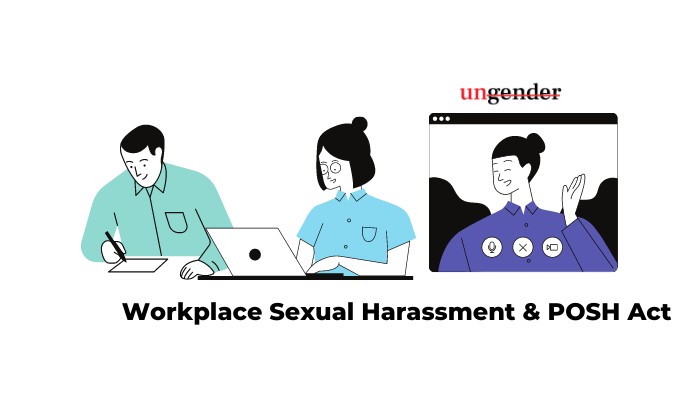POSH This Week: Activists Want Sexual Harassment Case Against TCS Techie Fast Tracked

Written by: Rituparna Chatterjee
Every week we bring you a roundup of news and opinion on the Sexual Harassment of Women at Workplace (Prevention, Prohibition and Redressal) Act, 2013, popularly called the POSH Act, from Indian media, focusing on workplace sexual harassment and its far-reaching effect on equality, equity and mental health of employees of diverse gender identities.
Here are five reported stories on POSH in the week of November 23, 2020:
In its annual report, the India’s National Crime Records Bureau, stated that 32,033 rape cases were registered in India in 2019. In 2019, 2,386 lower caste women were raped across the country.
“They come from the Valmiki community, those who are forced to clean human excrement,” the Boston University News Service quoted Manjula Pradeep, an activist who works for Dalit Human Rights Defenders Network and a lawyer, as saying about the background of victims. “If somebody rapes a woman from this community, people can’t even believe she could be raped because they think that she is the most defile person on this earth,” she said in a piece titled ‘Rape incident in India emblematic of larger issue.’
In August 2019, an employee of Tata Consultancy Services lodged a complaint with the Labour Court in Kancheepuram, alleging sexual harassment by a former manager.
“In March 2018, Revathi (name changed), an employee of Tata Consultancy Services (TCS) who was working on-site in the United Kingdom, was allegedly sexually harassed by her manager at the workplace. An Internal Committee (IC) investigation carried out by the company based on her complaint had found that sexual harassment ‘could not be proven’. Revathi says this was despite evidence — including chats and office records — submitted by her. Revathi took the corporate giant to the Labour Court in Kancheepuram where, after over two years, the case is still ongoing.”
“The work women are generally engaged in is rendered as unimportant and overlooked in policymaking. Lack of reproductive autonomy and decades of neoliberal macroeconomic policies have ‘funnelled and segregated women into low wage and low-status job markets’ while rendering invisible the incredible burden of women’s unpaid care and domestic work,” writes Nishtha Gupta for Youth Ki Awaaz in a piece titled, How Can India Make Workplaces Safer For Women?
Kerala’s decision to do away with the idea of lodging children subjected to sexual harassment at Nirbhaya shelter homes has garnered praise from child rights activists. Activists point out that such shelter homes are against the spirit of the Juvenile Justice (care and protection of children) Act (JJ Act) which emphasised that institutional care must be the last resort. According to them, such homes lead to further stigmatisation and later ostracism of children in society, Dileep V Kumar writes in the New Indian Express.
L’Oréal Paris has partnered with Breakthrough, an NGO that works for women’s welfare, to conduct virtual and in-person training sessions. A survey conducted by L’Oréal Paris in 2019 about women’s issues showed that 78% of women have experienced sexual harassment in public spaces. Only 25% of the victims say they were helped. 86% of them do not know what to do when they witness it happening. 79% say it improved the situation when a witness intervened.
Ungender Insights is the product of our learning from advisory work at Ungender. Our team specializes in advising workplaces on workplace diversity and inclusion. Write to us at contact@ungender.in to understand how we can partner with your organization to build a more inclusive workplace.
Read our insights about diversity, legal updates and industry knowledge on workplace inclusion at Ungender Insights. Visit our Blog.
Sign up to stay up-to-date with our free e-mail newsletter.
The above insights are a product of our learning from our advisory work at Ungender. Our Team specialises in advising workplaces on gender centric laws.
or email us at contact@ungender.in




